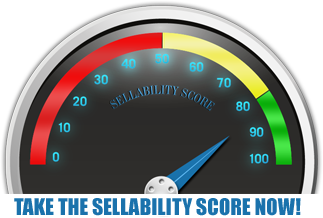When selling their companies, entrepreneurs, general managers and CEOs likely have one thing in common: the sale of their business is among the most important transactions they will make in their careers.
Because the stakes are high, thorough preparation is paramount. Mistakes made early in the sales process can result in significant costs during the deal and after it closes.
Secure the highest price
To help obtain the maximum price, preparations to sell a business ideally should begin at least one year prior to putting it on the market.
Why start so early? It allows the seller to:
- Rectify actions that may have been taken years ago, but which no longer fit the operation or make it as saleable,
- Update and assemble books and records in a cogent manner,
- Put documents in place for potential acquirers,
- Enhance management, if necessary, and
- Prepare for the future.
Once business owners begin thinking of selling their business, VR intermediaries suggest assembling an experienced team of experts, which should comprise a skilled business intermediary, a certified public accountant and a transaction-oriented attorney. The team should be familiar with making M&A deals and know the best avenues to a trouble-free sale.
Leverage the company’s best assets
Several things increase the value of a business to potential buyers: leveragable assets, perceived growth potential, flexibility of terms, availability, clarity and accuracy of information, and the strength of the business’ management team.
If it is a manufacturing or distribution business, receivables, inventory and equipment are leveragable assets. In other words, financial institutions will loan funds against part of those assets’ value.
If owners can show their company is growing its market share in its business and that the industry in which it operates is stable or growing, the perceived value of the company is more than that of a similar-size, stagnant-growth business or one in a shrinking market-place.
Similarly, if there is a good management team in place that is familiar with the business and its marketplace – and is willing and able to continue under new ownership – the company will be more valuable to potential acquirers.
Enhance value
There are two very important things owners can do to enhance their business’s value. The first is to have ongoing, clean financial statements, with extraneous expenses eliminated or, at minimum, isolated so prospective buyers can easily identify them. The other is to run a “fire drill” in preparation for the due diligence portion of the transaction.
After a letter of intent is negotiated with a potential buyer, the due diligence process begins in earnest. This crucial period is when many buyers try to reduce the price or enhance the contract’s terms and conditions governing the sale of the business.
It’s to the seller’s benefit to reveal all meaningful items of interest – good and bad – to the buyer early in the sales process. Companies that try to hide something usually pay for it later. After all, a serious buyer thoroughly evaluates the potential purchase and may view anything left out of the due diligence package as an intentional oversight. The buyer may then use that omission as a lever to lower the price or attach more stringent terms and conditions to the sale.
Strike before the iron gets hot
Even if an owner is simply thinking about selling a business, now is the time to act. Reinforce the need to operate cleanly and efficiently with your employees so a “neat package” can be present to prospective buyers.
It helps enormously to think as potential buyers will. That way, what they will want to know before committing a significant portion of their net worth to the acquisition can be anticipated.
Curious to see how you might improve the value of your business to both strategic and financial acquirers? Complete the Sellability Score questionnaire today and we’ll send you a 27-page custom report complete with your score on the eight key drivers of Sellability. Take the test now:




